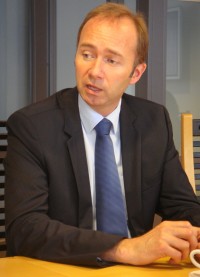NEWS ANALYSIS: As Norway heads into the New Year, it can boast low unemployment, one of the world’s highest standards of living and strong prospects for more economic growth. It’s not just the oil that keeps Norway running so well, agreed a mixed group of four business leaders and one committed social democrat over a long recent holiday meal.

Norway’s leading business newspaper, Dagens Næringsliv (DN), gathered the group for its annual julepanelet (Christmas panel) and used seven pages in a special holiday edition to record their conversation. The result was fascinating, and provided a rare glimpse into how the wealthy and powerful think, and view their own country’s welfare system.
One might assume they’d automatically bash the system because of the taxes and regulations it involves. Not so: Even retailing tycoon Stein Erik Hagen, who recently moved much of his family’s business operations to Switzerland to avoid Norway’s fortune tax, could be found praising what’s called “the Norwegian Model” and he even agreed on many points with Trade Minister Trond Giske, who belongs to the left-wing of the Labour Party.
Norway and Norway’s banks, all agreed, refrained from investing too heavily in the sort of “unhealthy” real estate booms that went bust in places like Ireland and the US. Norwegian investment firms also refrained from being “capitalists without capital” as many did in Iceland, noted Giske.

Kristin Skogen Lund, a former media executive who now heads the powerful employers’ organization NHO along with being a director of Telenor, noted that Norway was rebuilt after World War II systematically and with many restrictions, an authority level that likely wouldn’t be accepted today. Yet the foundations of the social welfare state cast during that time remain firm, just more liberal following a “loosening up” of regulations during the 1980s when a Conservative-led government took over from Labour.
Giske noted that “there is hardly any other examples in world history of a country like Norway that became rich so quickly (since oil was struck in 1969) and that has done so well.” Why?
Industrialist Jens Ulltveit-Moe claimed the Norwegian Model has succeeded because of Norway’s so-called handlingsregel, which limits use of oil revenues to save them for future generations, and recent pension reform. “It’s extremely impressive that a group of politicians has put handcuffs on themselves,” Ulltveit-Moe said.

Skogen Lund chimed in that it remains important to invest in “future value creation,” not simply higher consumption, which Åse Aulie Michelet, a member of many corporate boards in Norway, said has and should continue to include infrastructure and innovation. “We must devote more to innovation, to good education, we must dare to be the best,” Michelet said.
Norway can’t rely solely on its oil, and has, for example, built up its seafood industry. But the most important, all panel members agreed, is the ability to omstille: To renew and reorganize. Norway is good at that, at both the government and business level, and it may explain why Norway’s social welfare state has functioned better than Sweden’s of late. Not just because Norway has oil, but because Norway has managed its oil wealth well and adapted to change.
“We are so damn lucky that we live in Norway,” Ulltveit-Moe said. “We have the right business structure for what’s happening in the world, and we have a good government. The handlingsregel indicates we won’t fall into a trap.”


“But we can’t rest on our laurels,” cautioned Giske.
“No, we can’t do that,” said Hagen.
Views and News from Norway/Nina Berglund
Join our Forum if you’d like to comment on this story.

